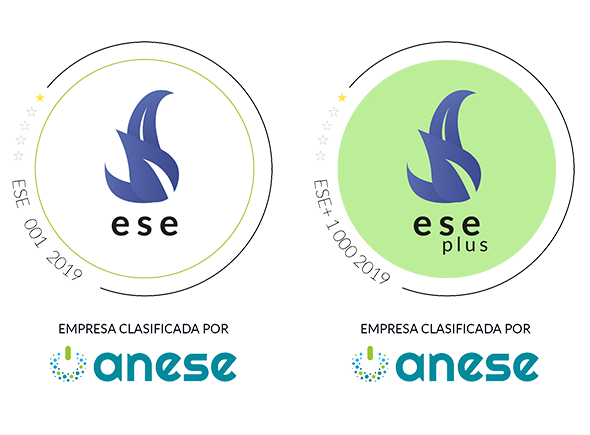ESE and ESE plus certificates
ESE and ESE plus seals
Defining Sustainable Excellence
This certification is aimed at those companies that work as energy service companies following the savings guarantee model and want to prove their experience, training, technological possibilities and technical potential. In this way they will be able to distinguish themselves through an endorsement that guarantees their professionalism.



Origin and objectives
This classification is an answer to the lack of regulation in this regard and the absence of an official registration with guarantee, and on the other hand it has the purpose of facilitating the client’s access and understanding of the ESCO model.
Procedure
The independent certifier TÜV Rheinland, ANESE collaborator, is in charge of carrying out the audits of the ESCOs that wish to obtain their certificate / recognition and their corresponding seal.
Finally, ANESE’s technical committee reviews the auditor’s report and approves the classification.
Comparison between an ESCO certified with the ANESE seal versus an Energy Service Provider (RD 56/2016)
Defining Sustainable Excellence
We decided to draw up a comparative chart between the ESE company concept with the ANESE Classification and the concept of Energy Service Provider according to Royal Decree 56/2016, Directive 2012/27 / EU.


